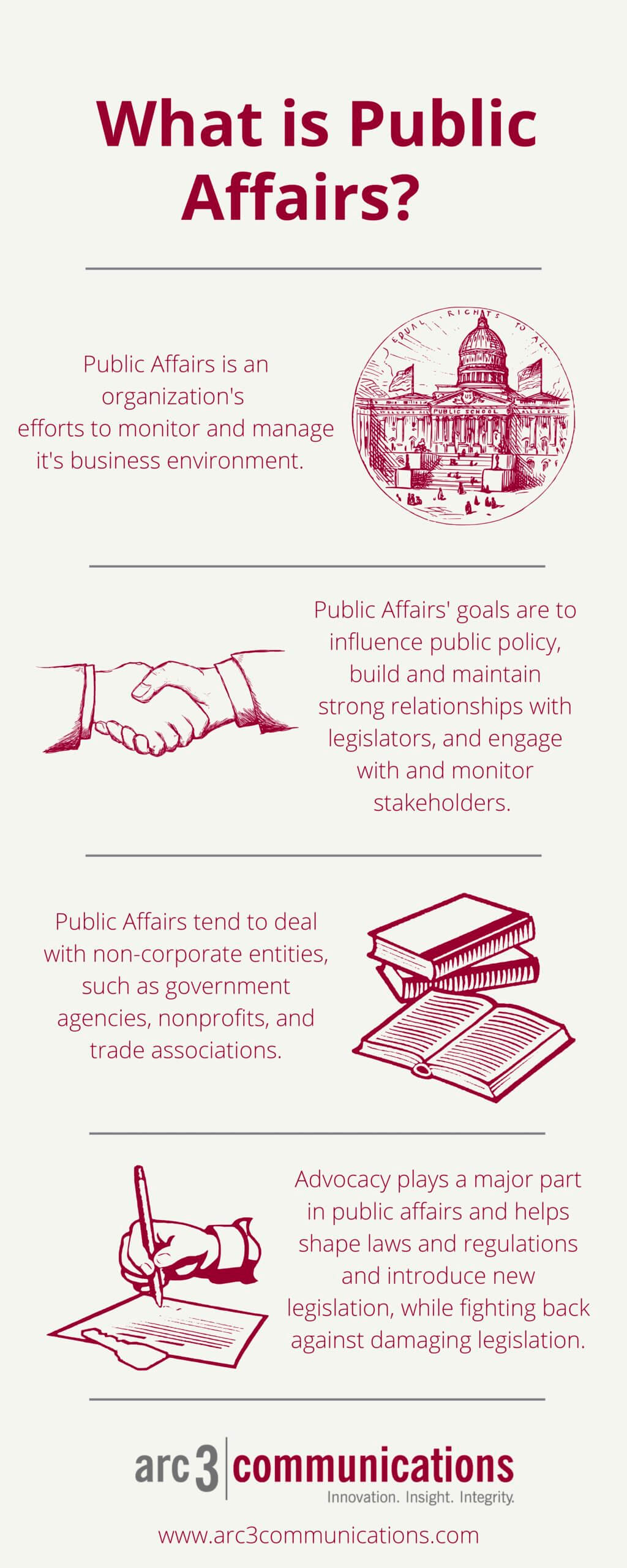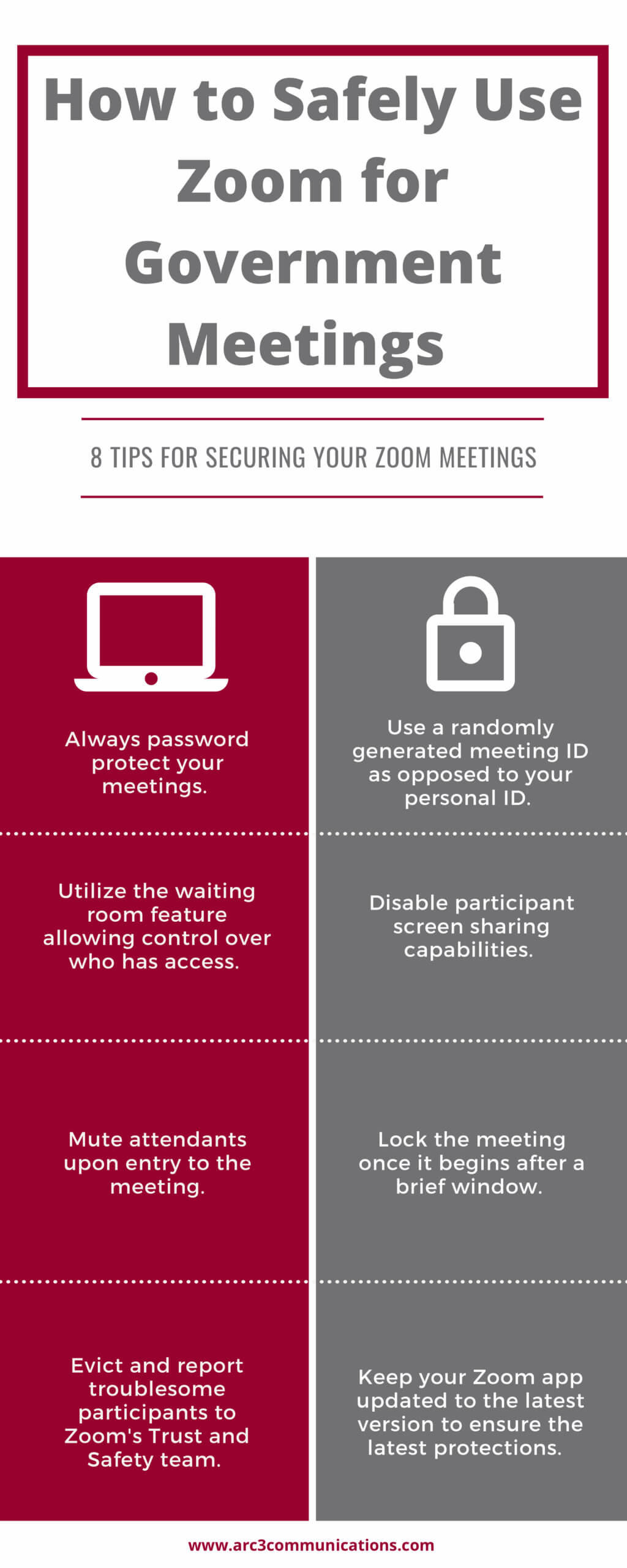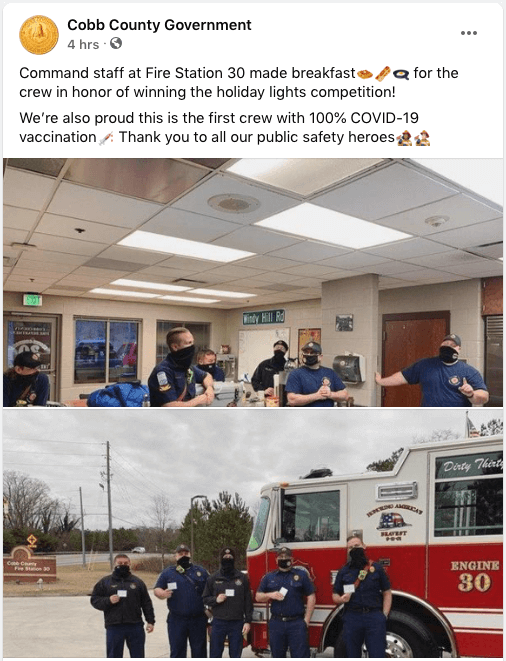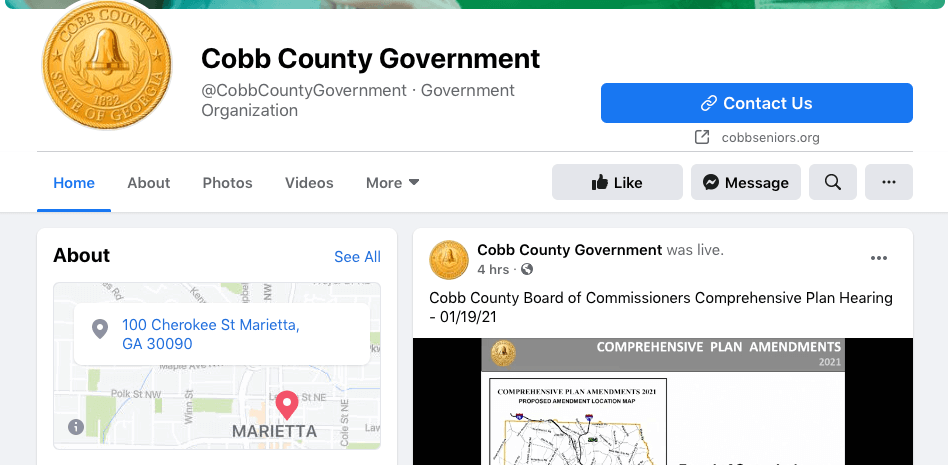The term “public affairs” is commonplace on the news and in government meetings, but what exactly is public affairs and what does it involve? Check out the infographic below to learn more about what public affairs is.

How to Create a Strong Social Media Policy for Your Local Government
![]() A social media policy is a code of conduct that provides guidelines for employees when it comes to posting content on the internet, whether personally or professionally. The goal of such a policy is to protect against legal issues or public backlash that may result from employees posting inappropriate or sensitive information. Social media policies for local governments not only protect the image of the community and its representatives and professional staff, but also encourage government employees to share credible news, events, and useful information about the city or county on their online networks.
A social media policy is a code of conduct that provides guidelines for employees when it comes to posting content on the internet, whether personally or professionally. The goal of such a policy is to protect against legal issues or public backlash that may result from employees posting inappropriate or sensitive information. Social media policies for local governments not only protect the image of the community and its representatives and professional staff, but also encourage government employees to share credible news, events, and useful information about the city or county on their online networks.
Control of Your Local Government’s Official Accounts
One aspect of your local government’s social media policy should be to establish who controls the government or department’s official social media program. This decides who has permission to create and deactivate official social media accounts; who can create and implement the social media strategy; and who can develop and enforce the social media policy.
There are two types of control you may decide to set up for your local government’s social media programs, centralized and decentralized. Having centralized control means you determine a single authority to have control over the creation of all accounts and require review by that authority of all posts or comments on the government’s behalf. This type of control can greatly reduce the risk of something being posted or shared that may be a liability. By having this form of control, a single authority can be held accountable for all social media activity. This single authority often times consists of a city of county’s communications team.
The other type of control is decentralized. This simply allows multiple department entities to have access to sharing and posting. For example, if the parks department wants to tweet about an upcoming event and the local police want to tweet alerts and updates, each will be granted permission to do so and trusted to abide by the social media policy. You can also have a combination of both where different departments may have access but posts still must be approved by a central authority.
A centralized approach tends to work best for small governments who may use their social less frequently and may only have a single Facebook page. Decentralized tends to make things easier for larger governments that have multiple departments and as a result, multiple social media pages across platforms.
Your Local Brand, Public Record, and Sensitive Information
Like with your personal social media accounts, your local government’s social media accounts reflect on your city or county, so it is vital to make sure anything that is shared or posted represents your local communities’ values. It is always important to think before you post, if you have to question it, it probably isn’t appropriate to share. According to the National League of Cities, some actions that are important to avoid are disinformation that may mislead and cause harm to the public, sharing private or confidential information, harassment and defamation, and violation of intellectual property rights.
It is important to set clear guidelines and rules for citizens, public employees, and elected officials who are utilizing your local government’s social media, whether on the content production end or as the consuming audience. Be sure to be specific and detailed regarding what sort of content can be posted and what kind of policies are in place when it comes to making and deleting comments. According to American City and County, local governments can run into legal trouble when an action taken on a social media page is seen as infringing on a citizen’s First Amendment rights, like deleting a comment.
Some recent court cases have decided that city, county, and even elected official social media pages are considered limited public forums of speech, and that citizens have the right to free speech when posting on them. Therefore, having clear and concise rules in the form of a legal social media policy can help protect your local government from any legal issues.
Protecting sensitive information is also vital when running your local government’s social media pages. With COVID-19, many citizens were getting all of their news and updates from digital channels including social media pages. This is exactly what these pages should be utilized for, but those with access and permission to post on behalf of the local entity must also be careful not to share any information that may be confidential or sensitive information.
This also applies to government employee’s personal social media accounts. Rules need to be in place regarding what employees can and can’t share, regarding government information, on their personal social media accounts. Also, as employees, their social media accounts reflect on the city or county as well, so nothing should be shared or posted that casts a negative light on the community. Rules regarding this can also be included in the social media policy.
Social Media Policies Protect Local Governments
Recently, the Cobb County School System in Georgia created and passed a new social media policy for their school district. According to an article in the Atlanta Journal-Constitution, this policy sets rules for Cobb County School District employees and prohibits them from making posts that harm or discredit the system or reputation of the school district. Violation of rules and guidelines outlined in the social media policy carries consequences that range from a written warning to the termination of employment. This helps ensure that posts made by employees of the Cobb County School District positively represent the schools within the district as well as the school system as a whole.
Social media policies protect local governments from liability that may come with issues that can arise from inappropriate social media posts. These policies help make sure that professional and personal social media accounts reflect positively on the government entities that the accounts and people represent. Having a policy ensures that your local government’s brand, credibility, and image are protected and allows things to run smoothly.
If you need help drafting or implementing a social media policy for your local government, contact us here.
How to Safely Use Zoom for Government Meetings Infographic

Why Advocacy at the Local Level is Crucial to Your Association’s Success
 Local government is very important to associations when it comes to the municipalities in which their industry members have a presence. Legislation that affects economic development, employment, operations, taxes, and more are decided at the local level. There is often important legislation that impacts how an industry can operate within a municipality in which it is located, and these can either benefit or hinder the marketplace for their industry and their members’ success.
Local government is very important to associations when it comes to the municipalities in which their industry members have a presence. Legislation that affects economic development, employment, operations, taxes, and more are decided at the local level. There is often important legislation that impacts how an industry can operate within a municipality in which it is located, and these can either benefit or hinder the marketplace for their industry and their members’ success.
When it comes to advocacy and policy issues, many think the most important action takes place at the state and federal levels. This is not always the case; some of the most important and influential work happens at the local level; in fact, many are saying in the age of COVID 19 that local is becoming the new state. The municipal and county level is often the starting point for policy ideas and from there they then expand to the state and federal levels. To be successful, your advocacy efforts must be comprehensive, and include strategies for the local level as well as for the state and federal levels.
Associations have started to shift advocacy resources and efforts to the local level to keep track of the issues important to them and their members. Whether it is a local ordinance that supports an association’s goals or threatens them, it is important to have strategies in place to either fight or support local legislation.
Writing letters, calling, and scheduling meetings with your local elected officials are a few grassroots level things you can do to advocate. Even in the age of COVID-19, you can still make a big impact by setting up Zoom meetings with a Mayor or City Councilman to discuss matters that are important to your association.
Grassroots efforts are very important for any association. Making sure you stay in the loop regarding local ordinances and issues that may affect your members is vital to keeping members happy and making sure your industry is successful in the municipalities it operates in. State and federal level advocacy garners headlines and attention, but the local level is closest to the people and where the most impact can occur. With many issues beginning at the local level, it is imperative to have a strong comprehensive strategy and action plan.
For help with your association’s advocacy efforts, contact us at https://arc3communications.com/contact-us/.
5 Ways Local Governments Can Improve Their Social Media During COVID-19
5 Ways Local Governments Can Improve Their Social Media During COVID-19
COVID-19 has created a major shift to digital when it comes to the way local governments provide services for and engage with their citizens. Local governments are tasked with keeping their citizens safe and informed both regarding the COVID-19 pandemic and the other many services they provide. Local governments must also be responsive to their citizens’ concerns while also working to keep the calm and provide reassurance during challenging times.
One tool that can be utilized by local governments are their various social media pages. Facebook, Twitter, and Instagram are great ways to keep in communication with citizens while also providing important timely information and creating an open dialog for people to voice suggestions and concerns. Below are five useful ways your team can begin utilizing your social media during COVID-19 and beyond.
- Emergency Alerts, News, COVID-19 Updates
In these times of uncertainty, it is essential to be able to relate any emergency alerts, updates, and new COVID-19 developments to your community as quickly and efficiently as possible. Not everyone has social media, so it should not be your main line for communicating these items, but it is a useful channel. This can be anything from severe weather warnings to school closures due to COVID-19.
It is important when relaying this type of information to do so in a reassuring and confident tone. Make sure to avoid use of all caps, exclamation marks, or language that may cause panic. You do want to be sure people are aware of any danger or risks and take these seriously, but it is also good to let them know the local government is doing everything it can to help.
- Important Meetings
Though meetings and public hearings may not be taking place in person, many local governments are holding official public meetings through Zoom and other virtual meeting platforms. Making sure your citizens have plenty of notice of upcoming virtual public meetings as well as all the necessary details, such as Zoom links and passwords, is crucial to making sure people in the community have the opportunity to attend these meetings and provide public input.
Posting this information on your social media accounts can also allow you to gauge public interest in a policy or topic, answer questions, and get an idea of the things people are saying about an issue by viewing the likes and comments. Be sure to keep a close eye on the comment section, so you can respond in a timely manner and answer any questions that may arise. Speaking of comments, have clear conduct guidelines in place to avoid any misinformation or inappropriate posting on your government’s pages.
- Be Open and Responsive
With many local government buildings having limited access to the public, many people may have trouble getting in contact with local officials they would like to talk to. It may not be possible to respond to every comment on each post; but utilizing apps such as Facebook Messenger allows for citizens to send direct messages. These should be checked and replied to in a timely manner as this will build trust while providing answers and letting the people of your community know their voices are being heard.
You should also have a visible link to your government’s website and contact us page that will allow an email or direct message to be sent if you
are unable to check the social media messaging apps. A great example is Cobb County, Georgia’s Facebook page pictured below, in which they have multiple options for contacting them prominently at the top of their Facebook page.
- Assisting Local Law Enforcement
Another important use for local government social media is assisting local law enforcement in spreading any important alerts or information. They can share missing children alerts, be on the lookout (BOLO) alerts, and even public service announcements and safety tips to help keep the community safe. Many local law enforcement agencies have their own social media accounts, but local government can help by sharing any important public safety messages on main accounts.
Traffic alerts, road closures, and construction news can also be shared to help keep people informed of possible detours, traffic patterns, and accidents in their area. This can help prevent frustration and keep traffic flowing smoothly on local roads.
- Messages of Hope and Positivity
 COVID-19 has been hard on everyone. It is important to provide hope and positivity for the people of your community and let them know that brighter days are ahead. Things such as inspirational quotes, news about successful fundraisers, happy stories from around town, and messages of positivity from elected officials can go a long way in turning the tide of negativity and allowing you to bring some light into your community. Though times are difficult right now, as communities, we can come together and get through it; people need to be reminded that there is light at the end of the tunnel.
COVID-19 has been hard on everyone. It is important to provide hope and positivity for the people of your community and let them know that brighter days are ahead. Things such as inspirational quotes, news about successful fundraisers, happy stories from around town, and messages of positivity from elected officials can go a long way in turning the tide of negativity and allowing you to bring some light into your community. Though times are difficult right now, as communities, we can come together and get through it; people need to be reminded that there is light at the end of the tunnel.
Your local government’s social media accounts are a powerful tool for keeping connected with your community and making sure the wheels keep turning. It also allows the people to know their voices are important and being heard. It also allows your citizens to attend local public meetings and be a part of important decisions that affect their community. And finally, it can bring messages of hope and positivity to your community during these challenging times. So please make sure you are utilizing your local government’s social media accounts, and if you need help with strategies and ideas for your community, contact us here.

